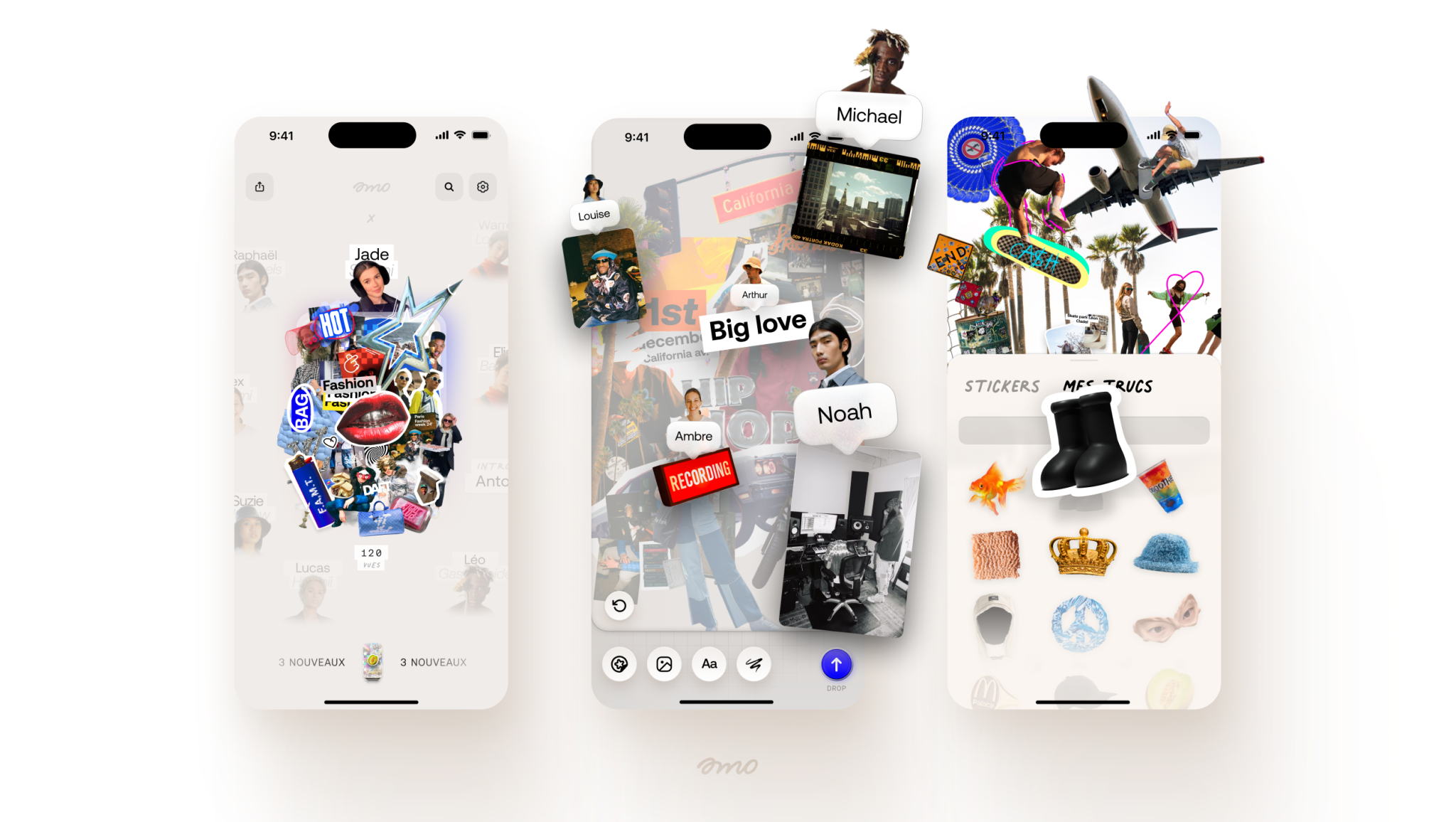[ad_1]
After months of mysterious teasing, France’s new social media app is dwell.
ID is the invention of startup amo and its founder Antoine Martin, who is taken into account the godfather of France’s rising social media app scene. His earlier firm, Zenly, was offered to Snap for about $250m in 2017, making ID’s launch extremely anticipated within the small bubble that’s French tech.
Free app ID allows customers to work together by “dropping” content material on one another’s profiles often known as “boards”. Its recognition comes on the heels of one other French social app, BeReal, discovering world recognition and a spot within the cultural canon of social media.
Ten days after launch, my board continues to be fully empty. As I meet the amo staff of their ultra-slick Parisian workplace — suppose turntables in a nook and posters for the newest ‘Basquiat x Warhol’ exhibition on the partitions — I inform Martin and his cofounder Michael Goldenstein, additionally ex-Zenly, that I don’t suppose I get it.
Because it seems, that’s not totally my fault. ID largely capabilities because of different individuals filling up their mates’ boards. Martin snaps an image of me, drops it on my profile and provides a Sifted emblem within the background.
He explains that customers are supposed to navigate one another’s boards, dropping memes, photos or stickers, drawing and writing, and naturally filling up their very own profile.

Customers are getting artistic. The founding father of French burger joint Dumbo promised free meals to individuals who dropped burgers on his profile. One consumer requested their mates to attract sketches of them. One other one caught a sport of Join 4 on their board, added a small crowd of individuals watching and pinned an image of everybody they beat.
Even Martin’s mom is doing a significantly better job than I’m — her board options cute photos from the founder’s childhood laid upon current ones of his son.
“We gave individuals far more freedom to fill of their boards,” says Martin. “It’s the alternative of Instagram’s three-by-three grid.”
All of the boards are seen to anybody on the app, however customers can restrict pal requests.
$18m seed spherical
Martin and Goldenstein raised an $18m seed spherical for amo led by high-profile traders Newwave, Coatue and DST World and together with VCs Alven and Origins. Sifted understands that the corporate is valued by traders at greater than $100m, however amo declined to substantiate a quantity.
These are large numbers for a non-US startup within the client area, concurrently related corporations like BeReal are beginning to seeing their enchantment wane.
Amo’s founders are happy with the launch of ID; 1000’s of customers signed up within the first few days and the app has seen traction within the US, its largest market by downloads. However the staff recognises there may be a lot additional to go.
“We all know it’s just the start and the entire staff is heads down engaged on what’s subsequent,” says Goldenstein.
The short-term goal is to develop as quick as attainable, says the founder, and which means bringing new options to maintain customers on the app. It’s a problem that amo’s 30-people staff, which is made up of many former Zenly workers, is already conversant in.
“Most corporations in social, as soon as they catch hearth with one thing new, they spend all their time making an attempt to handle the fireplace quite than innovating on new issues,” says Goldenstein.
“90% of social apps is the execution sport, and that’s what this staff is aware of to do greatest.”
Studying from Zenly
In truth, amo is so centered on rising ID that even its monetisation technique continues to be TBD.
“We wish to achieve a essential measurement as quick as attainable,” says Martin. “If we now have a essential measurement, it received’t be an issue, we’ll earn a living finally. That’s not what’s at stake now.”
There may be one factor, nonetheless, that he’s sure about. In 2022, simply 5 years after it was acquired by Snap, Zenly was shut down because the US firm introduced it was chopping 20% of its staff. This time round, Martin is decided to maintain doing his factor — with out the assistance of a purchaser.
“There have been many good issues about Snap […] however in the direction of the top we felt shackled,” he says. “We felt like we may do greater than we did.
“This time, we received’t cease — and we predict there are different methods than to promote ourselves early and even to promote ourselves full cease.”
[ad_2]
Source link





